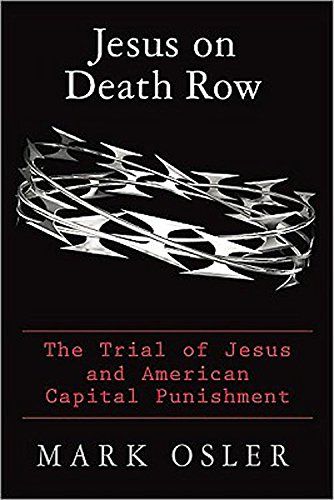Jesus on death row..
What Does The Most Infamous Criminal Proceeding In History -- The Trial Of Jesus Of Nazareth -- Say About Capital Punishment In The United States? How Might We See Capital Punishment In This Country Differently If We Realized That The System Used To Condemn The Son Of God To Death So Closely Resembles The System We Use In Capital Cases Today? That Is The Question Posed By This Surprising, Challenging, And Enlightening Book. Jesus Christ Was A Prisoner On Death Row. If That Statement Surprises You, Consider This Fact: Of All The Roles That Jesus Played -- Preacher, Teacher, Healer, Mentor, Friend -- None Features As Prominently In The Gospels As This One, A Criminal Indicted And Convicted Of A Capital Offense. Now Consider Another Fact: That The Arrest, Trial And Execution Of Jesus Bear Remarkable Similarities To The American Criminal Justice System, Especially In Capital Cases. From The Use Of Paid Informants To The Conflicting Testimony Of Witnesses To The Denial Of Clemency, The Elements In The Story Of Jesus' Trial Mirror The Most Common Components In Capital Cases Today--back Cover. Introduction -- The Story Of Jesus Christ, Defendant -- The Investigation And Inculpatory Statements -- The Use Of A Paid Informant -- Strategic Arrest -- The Maiming Of The Slave And The Role Of Power -- The Initial Appearance -- Last Meal/last Supper -- The Fact Of A Trial -- The Trial Witnesses -- The Prosecutor's Emotion -- The Appeal To Pilate -- Habeas Denied -- The Governor Denies Clemency -- Humiliation Of The Convicted -- A Cruel And Unusual Execution -- Forfeiture -- The Problem Of Innocence -- Aloneness And The Ethics Of The Crowd. Mark William Osler. Includes Bibliographical References (p. 145-154) And Index.

